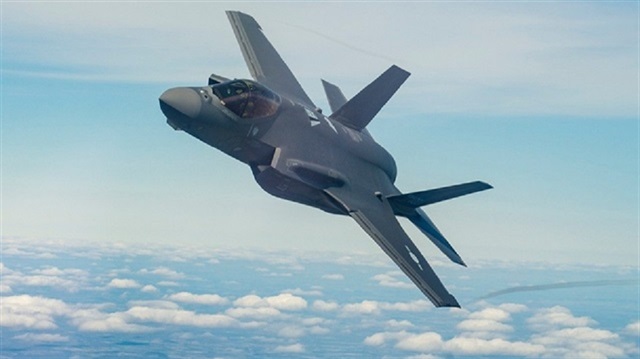

File photo
Bill includes amendment prohibiting sale of F-35 jets to Turkey until Pentagon issues report in 90 days
The U.S. Senate overwhelmingly approved a $717 billion defense policy bill Wednesday, sending it to President Donald Trump’s desk for his expected signature.
The 87-10 vote for the annual National Defense Authorization Act (NDAA) will give the Pentagon a $638 billion base budget for defense-related programs linked to the Department of Energy plus an additional $69 billion for possible overseas operations.
The bill would also authorize a 2.6 percent pay raise for troops, the largest in nearly a decade, as well as boost the size of the Navy and the ranks of the military services by 15,600 active-duty troops.
It also includes an amendment prohibiting sales to Turkey of F-35 Joint Strike Fighter jets until the Pentagon issues a report on Turkish-American relations in 90 days.
The report is expected to include an assessment of Turkey's participation in the F-35 program as well as the risks that would be posed by the country's purchase of the Russian S-400 missile defense system.
Later, Turkey's removal from the F-35 program was taken out of the bill by the Congressional Conference Committee.
Defense Secretary Jim Mattis, in a letter to the Senate on July 7, also opposed the removal of Turkey from the F-35 program, saying it could cause a disruption in a supply chain for the U.S. military and its partners while increasing other program costs.
Criticizing the U.S. for trying to force Turkey not to purchase the S-400 air defense system from Russia, Turkish Foreign Minister Mevlut Cavusoglu last week recalled that Turkey had been trying to purchase the Patriot air defense system from the U.S., but the missiles have never been sold to Turkey when they were needed the most.
"This is the reason why Turkey, which is in urgent need of these weapons, has chosen to purchase them from Russia," he added.
Touching on the F-35 fighter jets, Cavusoglu also emphasized that if Washington as the worst-case scenario decides not to sell F-35s to Turkey, then no one can tell Turkey not to buy aircraft from a second country or not to produce its own.
Turkey has been in the F-35 program since 1999. The Turkish defense industry has taken an active role in the production of aircraft. Alp Aviation, AYESAS, Kale Aviation, Kale Pratt Whitney and Turkish Aerospace Industries have been producing parts for the first F-35 fighter jet.
Turkey plans to purchase 100 F-35 fighter jets in the coming years.
#Conference Report
#Conference Committee
#F-35
#National Defense Authorization Act
#NDAA
#President Donald Trump
#Senate
#The Pentagon
#the U.S.
#Turkey

